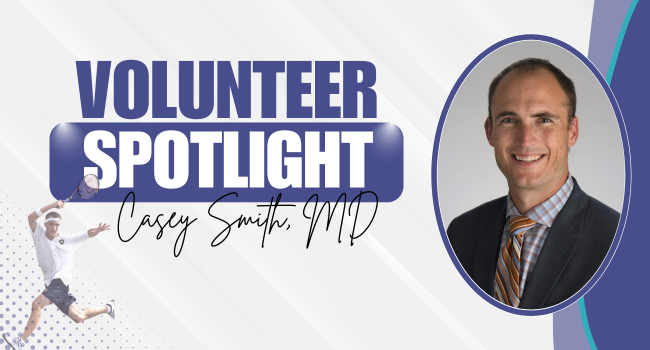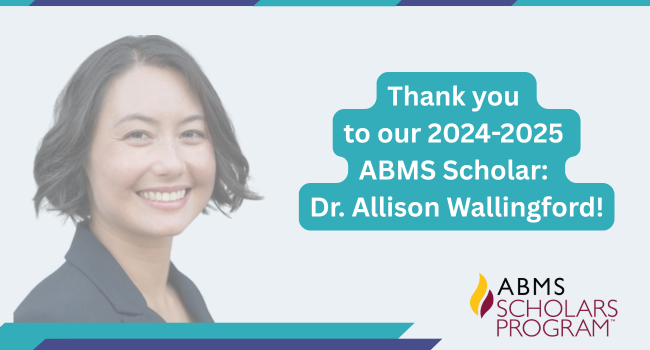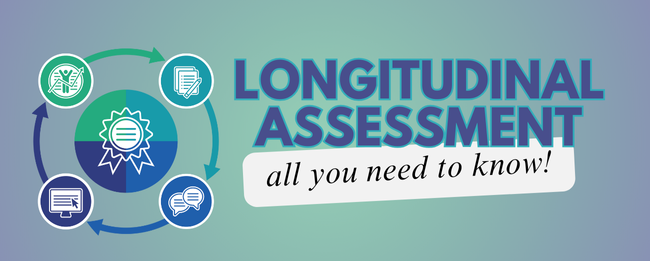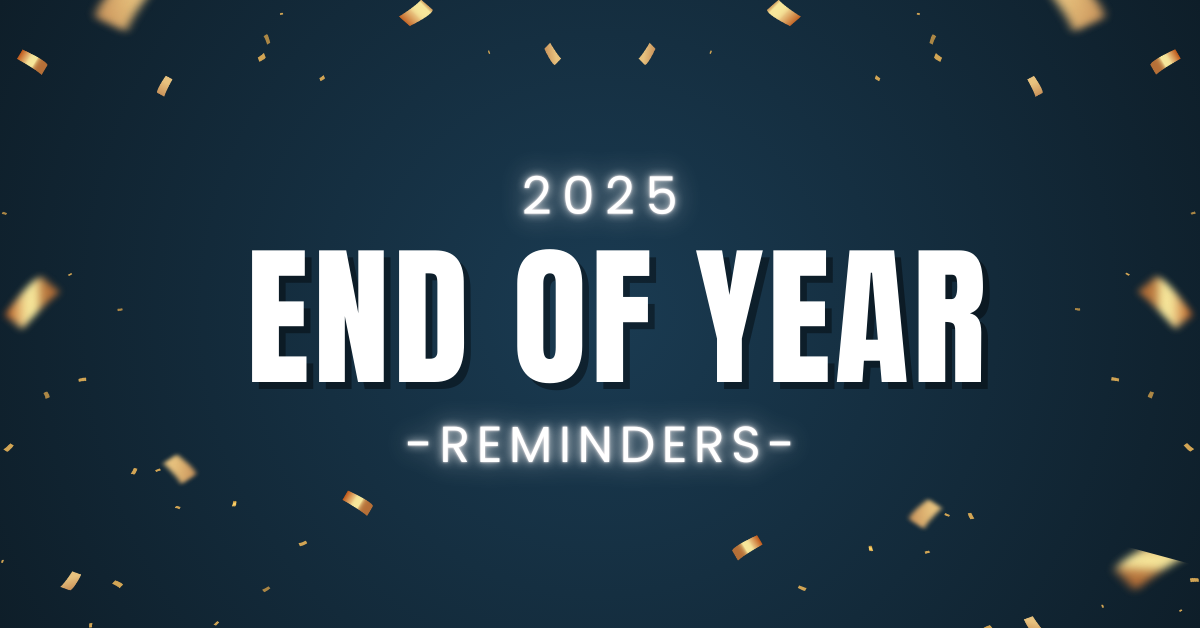Physician Features
Volunteer Spotlight: C. David Lin, MD
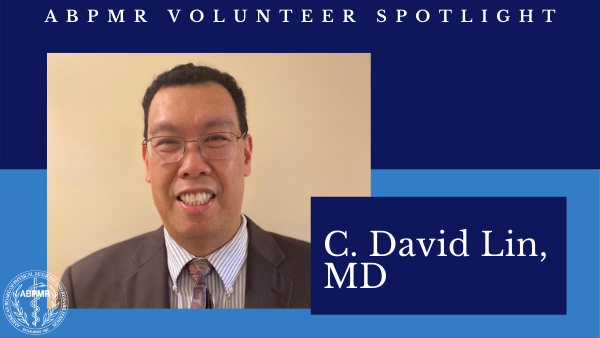
This week we are recognizing C. David Lin, MD, on the Volunteer Spotlight. The ABPMR Volunteer Spotlight showcases who ABPMR volunteers are, what they do, and why they do it. The work of our volunteers helps the ABPMR fulfill our mission to serve the public by setting the standard for quality in PM&R, and we are grateful for all the time and hard work each volunteer gives. Thank you for everything you do!
Dr. Lin has been volunteering with the ABPMR for several years in various roles: as a Part II oral examiner, an item writer for Brain Injury Medicine Examination, and an item writer for Longitudinal Assessment for Physical Medicine and Rehabilitation (LA-PM&R). This year, Dr. Lin was one of three examiners who volunteered for all three Part II Examination weekends.
Dr. Lin also has the distinction of holding five board certifications: he was certified in PM&R in 2004, spinal cord injury medicine in 2006, sports medicine in 2008, neuromuscular medicine in 2009, and brain injury medicine in 2014. He currently serves as medical director of the Acute Inpatient Rehabilitation Unit at Weill Cornell Medicine, where he has practiced since 2003.
In our conversation, Dr. Lin spoke about volunteering as a great social and educational opportunity, what he’s learned as a volunteer, and how he stays busy outside of work and volunteering (it involves robotic Lego competitions).
How did you get started in physical medicine and rehabilitation?
My mom was a rehabilitation nurse in Birmingham, AL where I grew up, so I heard her talking about it when I was a kid! I went to medical school at the University of Alabama School of Medicine, then did my residency at New York University/Rusk Institute of Rehabilitation Medicine. I got my primary certification in 2004.
Did you start volunteering with ABPMR right after becoming board certified?
I got involved five or six years ago when the ABPMR asked me to volunteer. I started working with the Part II Examination.
What was your interest in Part II?
I like the interaction with the candidates— it’s very verbal, and there’s real-time scoring when you’re doing the exam.
What keeps you coming back to volunteer, especially so much for the Part II Examination?
Part II is fun! It’s interactive and you get to see other examiners in addition to the candidates. It’s fun to mingle and see new friends in rehab. You get to meet people from all over the country.
Are you involved in other volunteer roles?
I’m also board certified in brain injury medicine, so I wrote questions for the brain injury medicine boards and the central nervous system portion of LA-PM&R. I’m currently writing exam questions for the brain injury medicine boards again.
What do you enjoy about question writing?
I like researching new material. Part of being a physician is to try to keep up. When you research questions, you learn things yourself. It keeps you on your toes! I also have residents that work for me, and it’s important I keep up with the medical literature.
Volunteering helps you continue learning throughout your career, but what else about volunteering is important to you?
Physiatry is a small field and not many people know about it. Being part of the board process validates your credentials, but also spreads the word of physiatry. For our field, it’s important that we do some sort of volunteer work and get the word out—it makes a difference in people understanding what we do.
What are some lessons you’ve learned in your time so far as a volunteer?
I was just as nervous as the examinees when I first started volunteering as an oral examiner, but I’ve learned to build confidence and to think more critically. You have no idea what the examinee will say—it’s important that you’re able to think on your feet. It improves your ability to convey thoughts and express yourself.
To diplomates considering volunteering, what would you say to them?
You definitely should volunteer! It’s fun, rewarding, you get new experiences, and it’s exciting meeting a lot of different people. You help yourself by learning new things, which you learn from candidates or your own research. I wouldn’t give it up, it’s a unique experience.
Do you have any memorable stories from your time volunteering?
My interactions with examinees during the oral boards are most memorable; you meet all sorts of people. I also enjoy interacting with other examiners each year during the Part II Examination. Every year there are different examiners and people to meet from different parts of the country. You get to see so many rehab people in one place.
What do you do outside of work and volunteering?
I have three kids doing remote learning. They’re all at home now so it’s a little crazy. I’m also part of an all-girls Lego robot team with my youngest daughter. My weekends are taking my three girls (ages 11, 13, and 15) to activities such as Lego/Robotics, Girl Scouts, birthday parties, swim meets, track cycling— most of which is now on hold because of COVID-19.
What is a Lego robot team?
It’s called First Lego League and it’s an exciting competition where teams research and build robots that can master various tasks or missions. This year’s theme is called RePLAY and the tasks revolve around health, sports, and fitness. The girls (and me) are super excited about building Lego robots via Zoom! We are planning for a virtual district tournament in March 2021. Wish us luck!
Getting to play with Legos sounds like a fun parent activity.
It gives you a reason to play with Legos! It’s complicated when it gets to how to program it, and the competition gets intense. It’s not the Legos I learned.
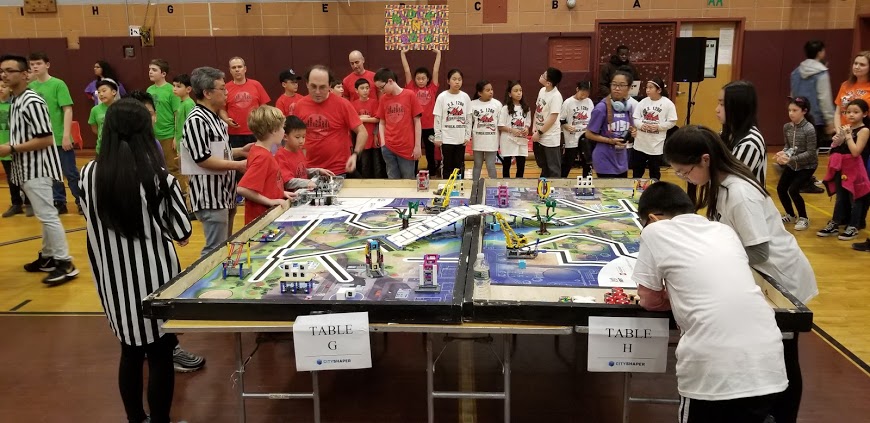
Dr. Lin's youngest daughter is holding up the sign at last year's First Lego League robotics regional competition.
What are some other fun facts about you?
My only other paying job, and the first job I ever had, was a short order cook at the Waffle House. I took my girls to Space Camp in Huntsville, AL last year and decided to swing by the good old Waffle House. I’m pretty good at flipping eggs and making omelets.
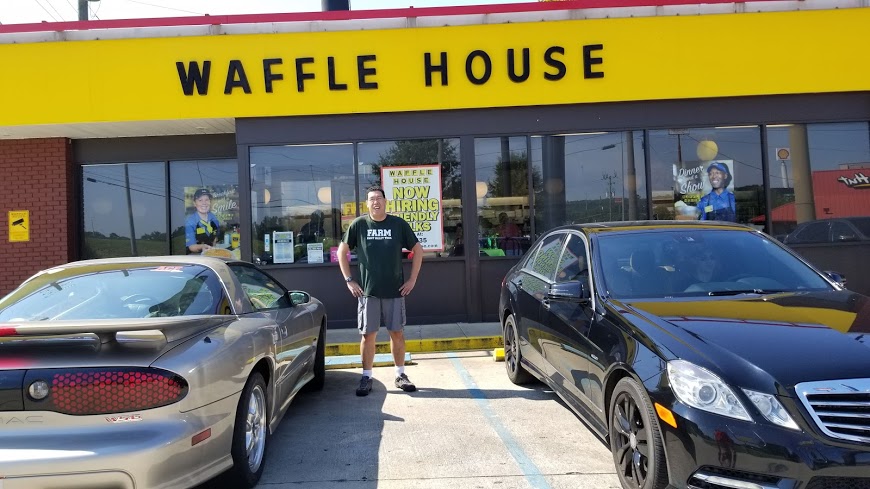
Dr. Lin visiting the Waffle House, his first and only other paying job.
Thank you, Dr. Lin, for all your work with the ABPMR, and especially for committing so much of your time to making the virtual Part II Examination a success this year. To all the ABPMR volunteers who have dedicated so much of their time and effort to the field of PM&R: thank you!
